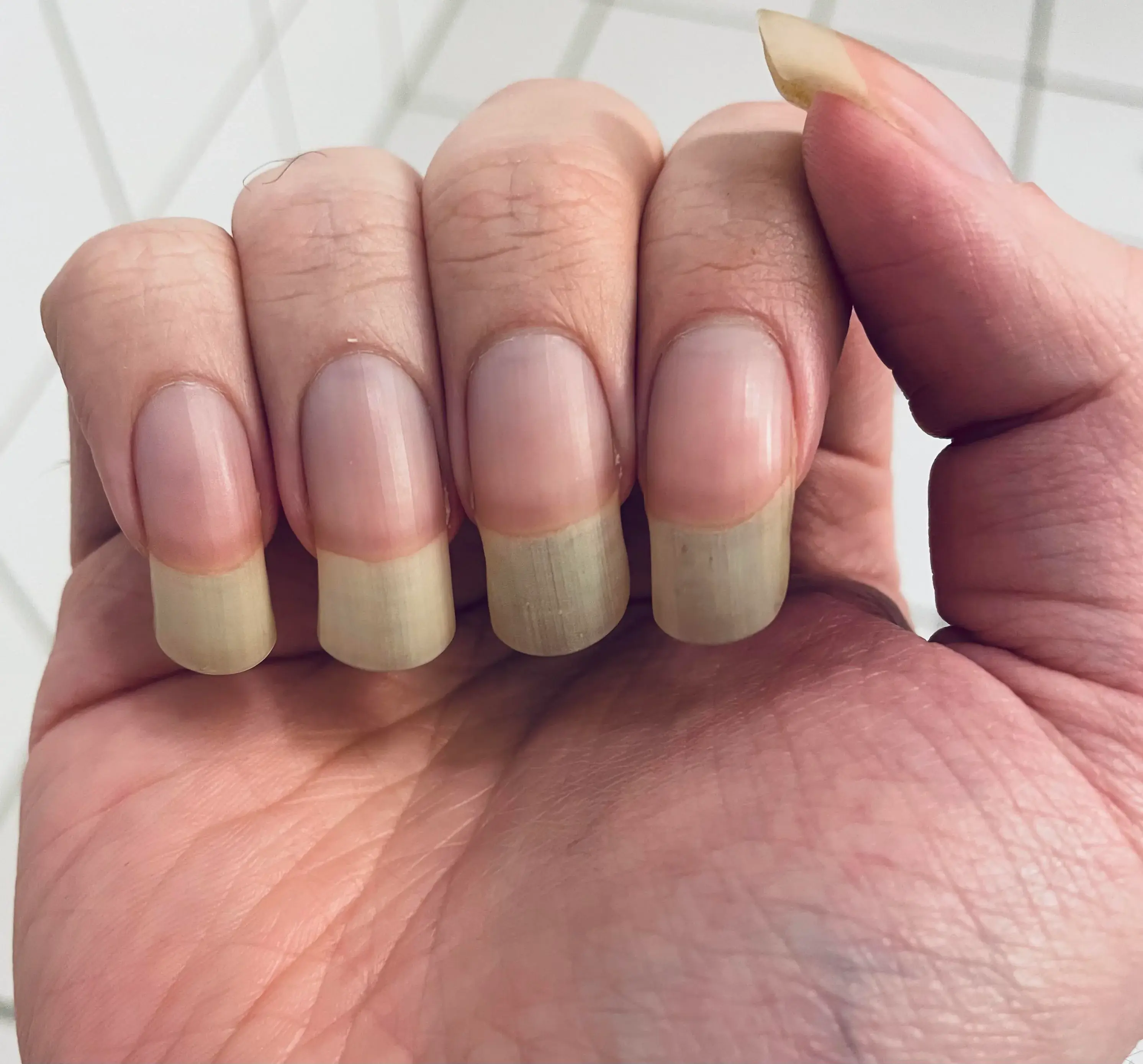
What Does It Mean When a Man Grows One Nail Long?
What Does It Mean When a Man Grows One Nail Long?
Expert Warning: One Food Storage Habit That Can Lead to Bacterial Overgrowth
Leftovers during the holidays are quite common. However, you should avoid storing them in this particular way, as even the fridge might not be able to save them.
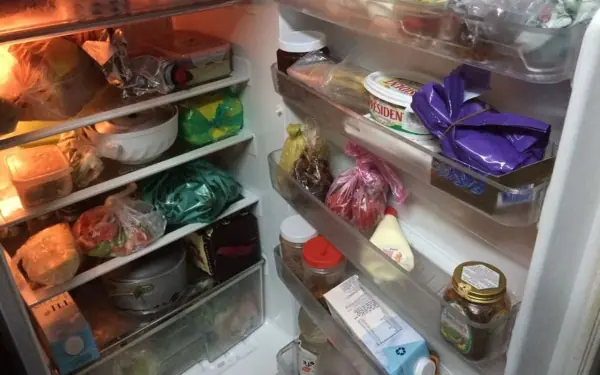
If you've ever been impatient while waiting for food to cool before storing it in the fridge, you're not alone. But you may want to reconsider this habit after learning what a food policy expert discovered during an experiment involving warm leftovers in the fridge.
Food expert Gavin Wren conducted a 'scientific' experiment to demonstrate why placing hot food in the fridge "actually disrupts the temperature" and may even damage your appliance. To make his experiment as scientific as possible, Gavin placed three temperature data loggers in different parts of the fridge—one in the salad drawer, one at the back of the middle shelf, and one at the front of the top shelf.
"These three areas of the fridge respond very differently to things like opening the door, adding hot food, or placing new groceries inside," Gavin explained. He then created an interactive graph to show how the temperature changed when he placed warm leftovers in the fridge.
For example, at 7 a.m., Gavin forgot to close the fridge door, causing the temperature in the top shelf to spike to nearly 9°C (48°F), the middle shelf to rise to 7°C (45°F), while the salad drawer remained unchanged.
To further test his theory, Gavin placed a warm pot of rice in the bottom section of the fridge, which had a minor impact on the salad drawer.
At 7 p.m., he cooked a meal using ingredients from the fridge, then portioned it and placed it on the top shelf. "The top shelf temperature rose to 18°C (64°F) and took four hours to return to normal," Gavin explained.
Not only can this affect your fridge’s performance, but it can also cause other stored foods to spoil more quickly. Gavin warned of the severe consequences: "This can make something like milk spoil ten times faster than usual. And that’s exactly why you should let food cool before putting it in the fridge."
Regarding leftover storage, the UK Food Standards Agency advises: "Do not put hot or warm food directly into the fridge. Instead, allow cooked food to cool at room temperature and place it in the fridge within one to two hours. To cool food quickly, divide it into smaller portions using containers or freezer bags before storing it in the fridge or freezer."
It’s also crucial to remember that leaving food out for too long isn’t safe either, as refrigeration slows bacterial growth. Bacteria multiply fastest between 4°C and 60°C (40°F–140°F), also known as the "danger zone."
If food stays in this temperature range for too long, bacteria can multiply rapidly. That’s why it’s essential to bring food down to room temperature as quickly as possible before refrigeration—by dividing it into smaller portions, placing it under a kitchen ventilation fan, or, if stored in a sealed container, submerging it in a cold water bath.

What Does It Mean When a Man Grows One Nail Long?

Waking Up to Urinate at Night: Normal or a Hidden Health Risk?

The Secret to Healthy Napping: It’s All About Timing

Magnesium is an essential mineral in the human body, playing a critical role in over 300 enzymatic processes.


Kidney disease is a serious condition that affects millions of people worldwide.

Night cramps, also known as nocturnal leg cramps, are a common and often painful condition that disrupts sleep for many individuals.

Did you know? If hair grows on your ears, it's because you body is...

How to Tell If Your Arteries Are Clogged

Move Around: Even light activity like walking can help reduce fluid accumulation, especially in the lower legs. Elevating your legs can also help reduce swelling.

Diabetes can affect many parts of the body, but the feet often show the earliest warning signs.
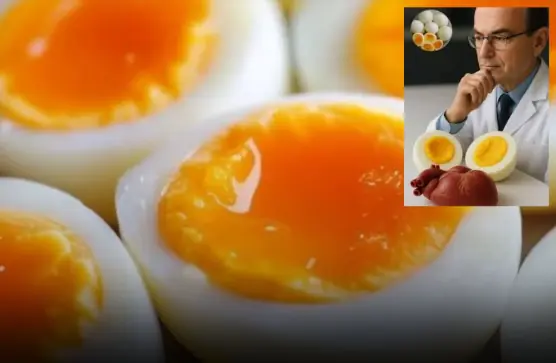
Doctors Warn: This Common Way of Eating Boiled Eggs Can Clog Your Arteries — Yet Many Still Do It Daily Without Realizing the Risk

Three tiny vegetables that deliver powerful calcium and nutrients.

A 22-Year-Old in Good Health Discovered Severe Tu.bercu.losisfrom a Subtle Warning Sign

Tofu Is Healthy, But Certain People May Need to Limit It
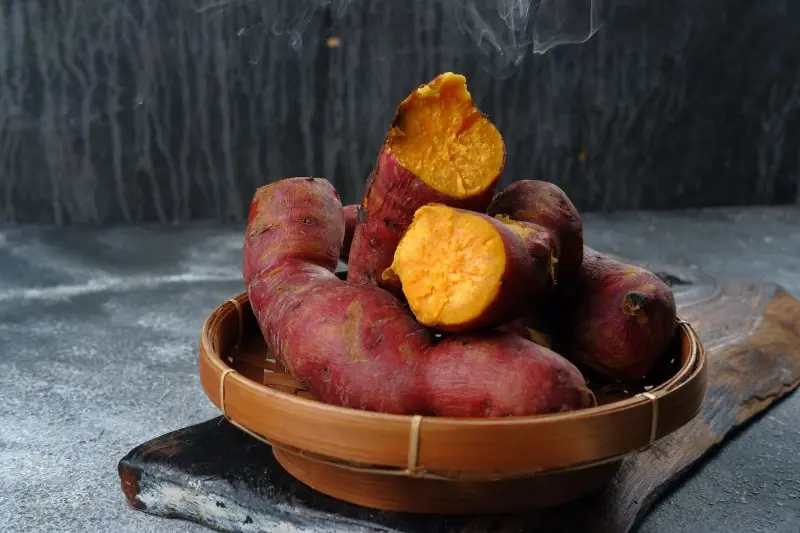
Morning Sweet Potatoes: A Small Change That Can Transform Your Health

Okra is nutritious, but not everyone should include it in their diet.

Your feet may reveal early warning signs of hidden diabetes.

Be Alert to Dia.betes If You Experience These 5 Uncommon Symptoms Often
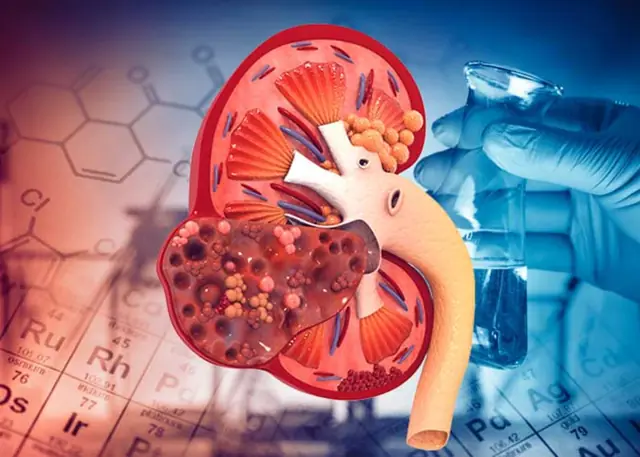
8 Possible Signs of Kidney Fai.lure You Should Not Ignore

What Does It Mean When a Man Grows One Nail Long?

Waking Up to Urinate at Night: Normal or a Hidden Health Risk?

The Secret to Healthy Napping: It’s All About Timing

Magnesium is an essential mineral in the human body, playing a critical role in over 300 enzymatic processes.


Kidney disease is a serious condition that affects millions of people worldwide.

Night cramps, also known as nocturnal leg cramps, are a common and often painful condition that disrupts sleep for many individuals.

Did you know? If hair grows on your ears, it's because you body is...

The True Meaning Behind a Cat Rubbing Against You

How to Tell If Your Arteries Are Clogged

Move Around: Even light activity like walking can help reduce fluid accumulation, especially in the lower legs. Elevating your legs can also help reduce swelling.

Diabetes can affect many parts of the body, but the feet often show the earliest warning signs.

Doctors Warn: This Common Way of Eating Boiled Eggs Can Clog Your Arteries — Yet Many Still Do It Daily Without Realizing the Risk





Three tiny vegetables that deliver powerful calcium and nutrients.

A 22-Year-Old in Good Health Discovered Severe Tu.bercu.losisfrom a Subtle Warning Sign

Tofu Is Healthy, But Certain People May Need to Limit It